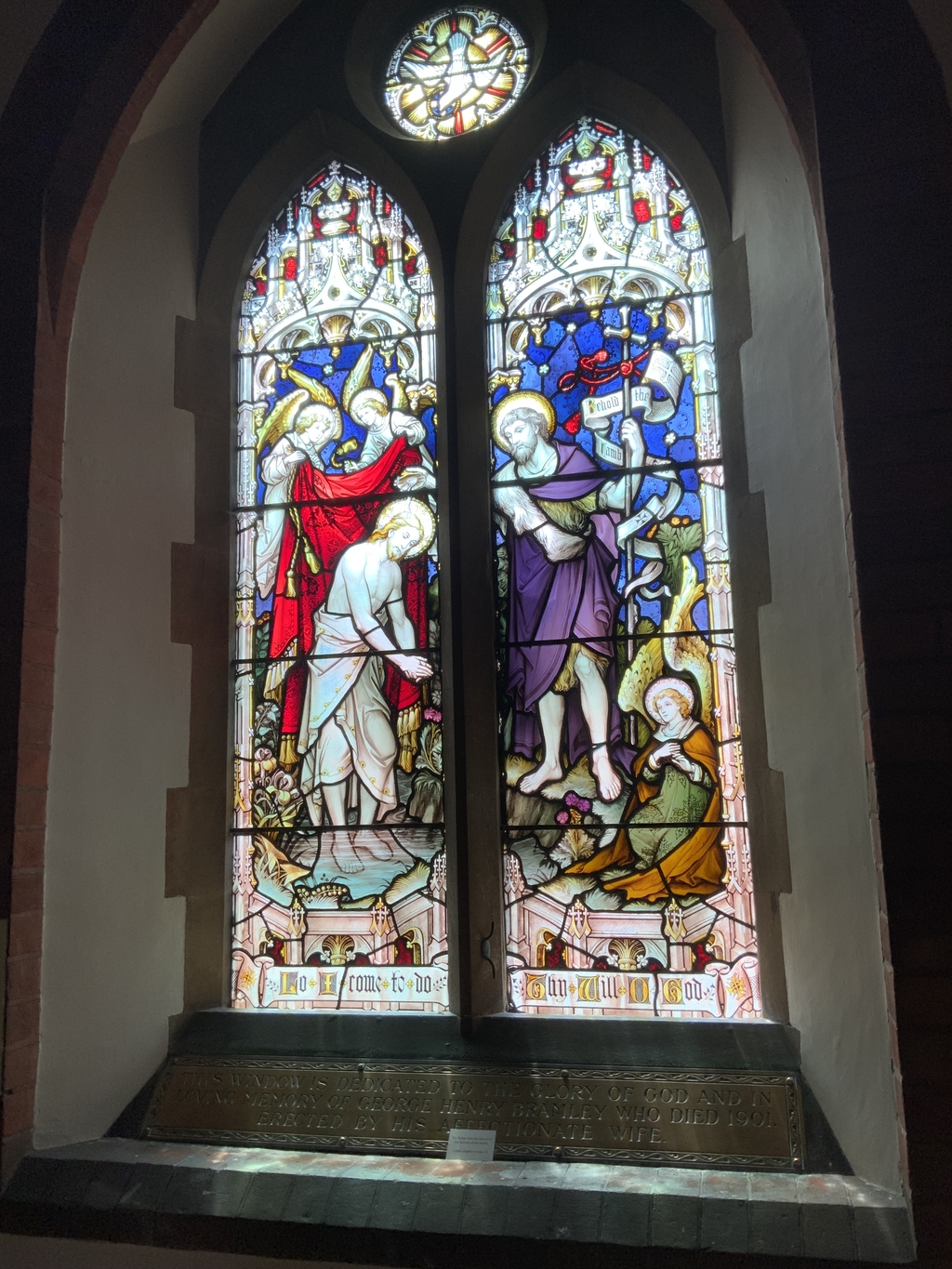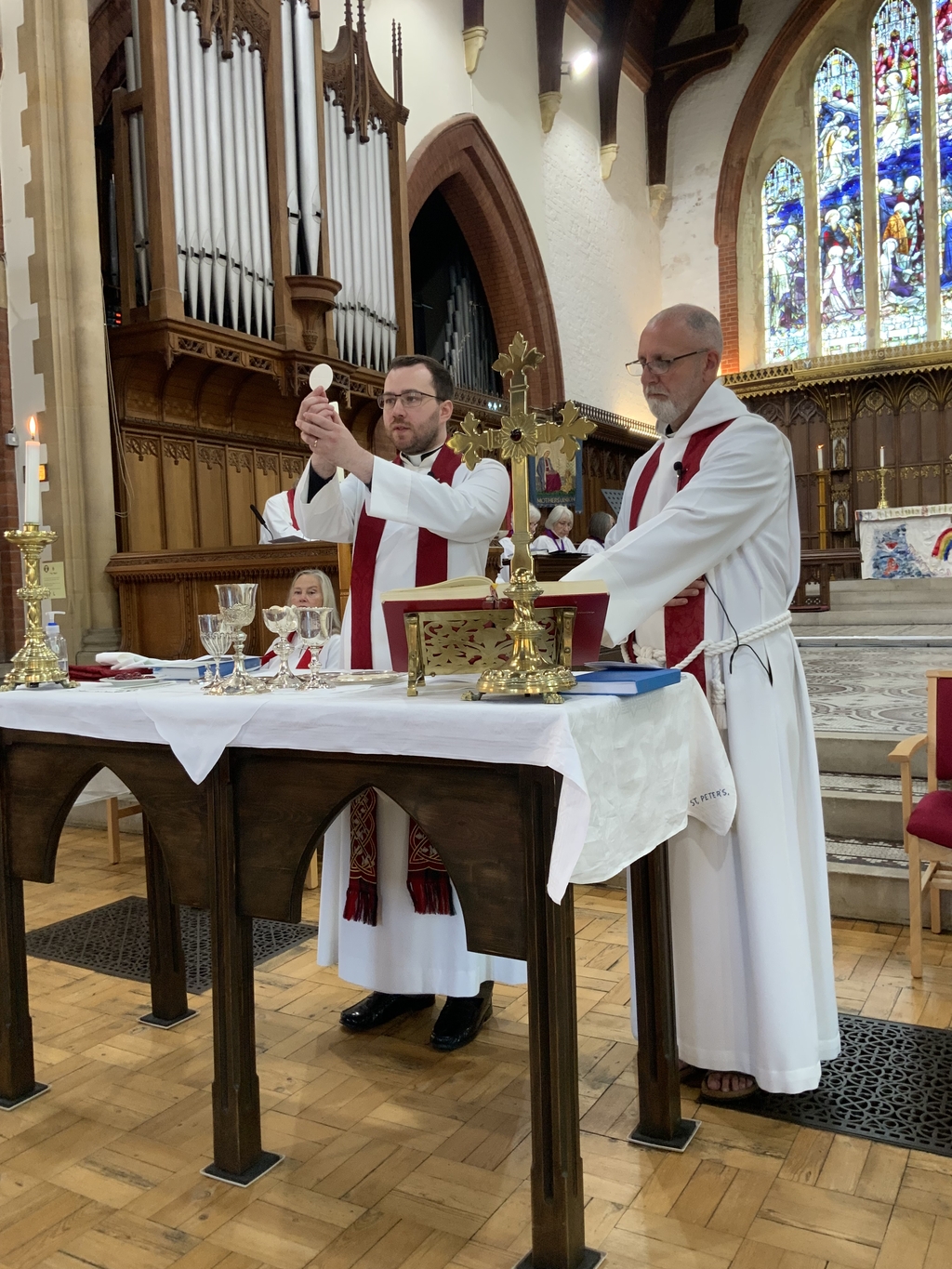Have you noticed that people usually say ‘Thank you’ to the bus driver when they get off of the bus? That’s not only here in North Norfolk, they do it all over the country, in some of the cities too. Whoever they are, young or old, most people say it. It’s quite heart-warming. It lifts the atmosphere. When I say it, a smile naturally comes with it. Giving thanks brings us joy.
Our readings this week teach us a lot about saying ‘Thank you’. I love the story of Naaman: a foreigner, the commander of a King’s army, a wealthy man of high status. He heard about God’s prophet in Samaria and went to see him, thinking that he would receive the personal attention he was used to. But Elisha sent his servant out to tell him to go and wash 7 times in the Jordan! The number 7 is a significant one in Judaism: it means completeness, wholeness, sanctification, association with God. When Naaman was healed, he went back to say ‘Thank You’ recognising that it was God who had healed him, and not the prophet. Elisha set the example of service to God, he didn’t see this as his opportunity to gain fame and wealth - he refused to accept the present he was offered.
Naaman had to humble himself before God in the river, and by doing so he was made whole. This inspired thanks to God, and the joy associated with it.
There were ten lepers who came to Jesus, asking for mercy. Jesus was in the region of Samaria, and there was a foreigner among the ten, asking for help. There are many parallels between the actions of Jesus and what’s written in Old Testament prophecies. Once again, the lepers were sent away to do something - this time to go to the temple in Jerusalem and show themselves to the priests. Again, they would need to humble themselves - not only was it a long walk, but they were outcasts and not likely to be received by the priests at all. But we’re told that they went, and as they did so they were healed. We don’t know how far they walked before it happened. We do know that one went back to Jesus to say ‘Thank You’, praising God with a loud voice, joyful.
We see in these stories the need for people to be ready to humble ourselves, to trust in God, and to know the gift of God’s love which raises our spirits and inspires the joy of giving thanks. As Christina reminded us last week: ‘People need food, but they also need to be told that they are included in the transforming, liberating, saving, never-ending love of God, shown to us in Jesus’ life, death and resurrection.’ This is the good news for us all to share. ‘The word of God is not chained’ said Paul. (2 Timothy 2:9)
Morale is pretty low in the land right now. We’ve had one body-blow after another in the news, and it’s not surprising that many people are anxious and down in the mouth. We often hear the kind of ‘wrangling over words which does no good but only ruins those who are listening’ that Paul wrote about.
When I was a child it was fairly common, even in non-religious households, for people to say ‘grace’ before a meal: “For what we are about to receive, may the Lord make us truly thankful” they used to say. It’s funny, in my childish way I imagined this meant that one day God was going to make me starve, and I wasn’t very happy about that!
But now I can see that it has merit - everything we’re thankful for brings us joy, and if we can live each day with an attitude of gratitude, truly thankful - knowing that we’re included, we’re loved by God too, the God we can trust to see us through everything life throws at us, then the thanks this inspires will bring a smile to our faces and lift not only our spirits, but it will transform the atmosphere for other people too.
Thank you for listening. Amen.
Julie Rubidge, Lay Minister.











